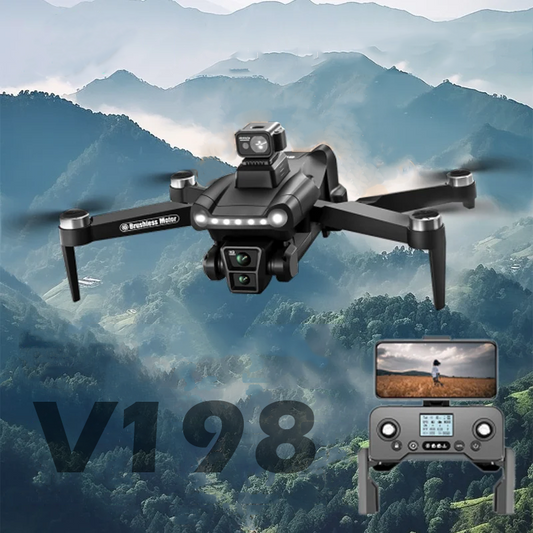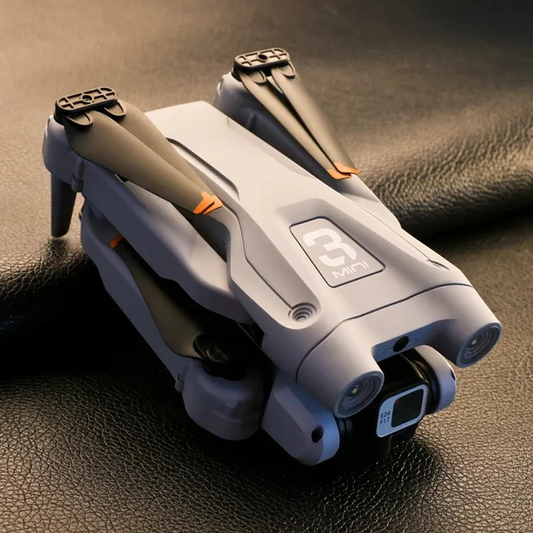Drone Laws and Regulations Around the World: A Guide for Travelers

In the era of technological advancements, drones have become ubiquitous, providing enthusiasts and professionals with unparalleled perspectives. However, the soaring popularity of these unmanned aerial vehicles comes with a caveat - understanding and adhering to drone laws and regulations around the world is crucial for responsible and legal drone usage. In this guide, we will explore the drone laws in various countries, offering travellers valuable insights to ensure a seamless and compliant drone experience.
Understanding the Basics:
Before delving into specific regulations, it's essential to grasp the fundamental principles that often underpin drone laws globally. Typically, these regulations focus on aspects such as flight altitude, no-fly zones, and registration requirements.
a. Flight Altitude Restrictions:

Drone laws often stipulate maximum flight altitudes to ensure the safety of both aerial vehicles and traditional aviation. Understanding these limits is crucial for travellers to avoid unintentional violations.
b. No-Fly Zones:

Many countries designate certain areas as no-fly zones, such as airports, military bases, and government buildings. Travellers must be aware of these restrictions to prevent security breaches and safeguard public safety.
c. Registration Requirements:
Some countries mandate the registration of drones, usually based on factors like weight and purpose. This process helps authorities track and manage the growing drone population.
Drone Laws Around the World:
Now, let's explore the drone laws and regulations in various countries, offering travellers a comprehensive guide to navigating the skies responsibly.
1.United States:

In the United States, the Federal Aviation Administration (FAA) governs drone regulations. Key guidelines include registering drones weighing over 0.55 pounds, adhering to airspace restrictions, and obtaining authorization for certain airspace zones.
2.Canada:

Transport Canada oversees drone regulations, focusing on safety and privacy. Travellers must register drones weighing between 250 grams and 25 kilograms and adhere to specific flight rules, including staying at least 30 metres away from people and property.
3.United Kingdom:

The Civil Aviation Authority (CAA) manages drone regulations in the UK. Travellers must register drones weighing over 250 grams, adhere to flight height limits, and steer clear of no-fly zones, including airports and restricted areas.
4.Australia:

The Civil Aviation Safety Authority (CASA) enforces drones laws in Australia. Registration is required for drones weighing over 250 grams, and operators must follow strict safety guidelines, including staying 30 metres away from people and structures.
5.Japan:

Japan's Ministry of Land, Infrastructure, Transport, and Tourism (MLIT) regulates drones. Operators must obtain a permit for certain flight activities, adhere to altitude restrictions, and avoid sensitive areas like airports and government facilities.
6.Germany:

In Germany, the German Aviation Authority oversees drone regulations. Operators must register drones weighing over 2 kilograms, follow strict safety guidelines, and obtain permission for certain flight activities.
7.South Africa:

The South African Civil Aviation Authority (SACAA) manages drone regulations. Travellers must register drones for commercial use, obtain permits for specific activities, and adhere to strict safety protocols.
Tips for Travelers:

Navigating drone laws and regulations while travelling requires careful planning and awareness. Here are some tips to ensure a smooth and compliant drone experience:
1.Research Local Regulations:
Before travelling, thoroughly research the drone laws of the destination country. Familiarise yourself with registration requirements, flight altitude limits, and any specific no-fly zones.
2.Pack Accordingly:
Ensure you pack your drone securely and comply with any transport regulations. Some countries may have restrictions on carrying drones in checked luggage, so it's essential to plan accordingly.
3.Check for Local Updates:
Drone regulations are subject to change, so stay updated on any amendments or new laws in the destination country. Local aviation authorities or government websites are reliable sources for the latest information.
4.Respect Privacy and Culture:
Be mindful of local customs and privacy concerns. Avoid flying drones in sensitive areas or capturing footage that could infringe on privacy rights.
5.Secure Necessary Permits:
If the destination requires permits for specific drone activities, obtain them in advance. This may involve submitting flight plans, providing proof of registration, or paying associated fees.
Drone Laws and Regulations
As the popularity of drones continues to soar, understanding and adhering to drone laws and regulations worldwide is paramount for responsible and enjoyable travel experiences. By staying informed, respecting local regulations, and adopting a mindful approach to drone usage, travellers can explore the skies responsibly and contribute to the harmonious coexistence of drones and traditional aviation. Safe travels and happy droning!
Explore a variety of drones at our online drone store.
Happy Flying!









